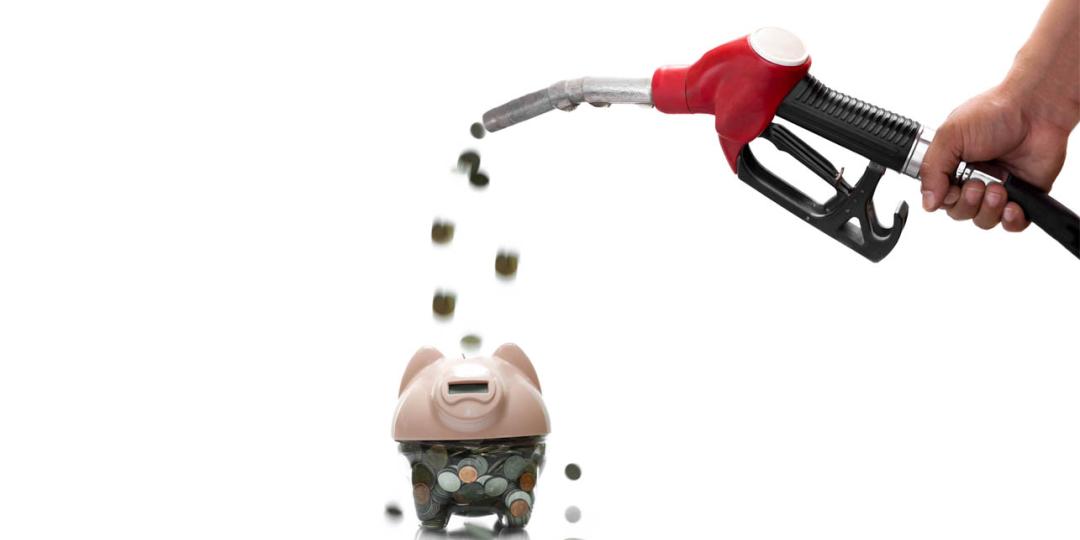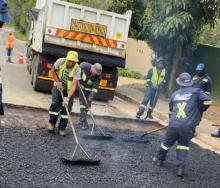The commercial property market and large shopping centres will be impacted by spiralling fuel prices as consumers travel less to the office and cut back on non-essential expenses like entertainment.
FNB economist John Loos said the cumulative fuel price increases of recent months had added significantly to overall consumer price inflation. The price of 95 unleaded petrol (ULP) increased by R2.33/litre and the price of 93 petrol rose R2.43/litre, while diesel prices increased between R1.07/litre and R1.10/litre in the latest price hikes on June 1. The price of 95ULP is now R24.17/litre and the price of 93ULP is R23.94/litre. The wholesale price of diesel in Gauteng is now R23.06/l.
“For many consumers, fuel spend is difficult to avoid, meaning that many have to reprioritise their expenditures and likely reduce more non-essential spending items, as well as delaying ‘postpone-able’ low-frequency purchases,” Loos said.
“We believe that this impact could be felt more in larger super-regional and regional shopping centres, which are more significantly focused on such purchases, including entertainment, eating out and clothing and footwear retail. Smaller convenience and neighbourhood centres focused more heavily on essential food and grocery shopping are likely to feel this indirect impact of fuel inflation to a lesser degree,” he said.
The ongoing fuel price increases are also negative for an already battling office property market.
“The office market is challenged by a lot of underutilised space due to a far higher working-from-home level compared to prior Covid-19 lockdowns. Now, as fuel prices become exorbitant, we expect many commuters who are able to work from home to an even greater extent to contain their fuel bills,” Loos said.
This could further encourage employers to reduce their office space needs.
“Commercial property is interest-rate sensitive, so insofar as fuel prices have been driving overall inflation and thus interest rates higher, they indirectly impact in containing credit-driven property buying via their impact on interest rates. We anticipate that sales activity in the commercial property market will start to slow in the second half of 2022,” he said.
Meanwhile, the Automobile Association and the Organisation Undoing Tax Abuse welcomed the government’s extension of the temporary fuel levy relief for two months. The 1.50 fuel levy relief has been extended to June and drops to 75 cents/litre in July before the full fuel levy of R3.85 resumes in August.
“Outa welcomes the extension of the temporary reduction in the fuel levy as desperately needed relief for motorists, commuters, business and the economy. This comes on the back of government’s statements less than 10 days ago that there would be no extension to the temporary reduction, which was met with an outcry from civil society.
The two-month extension was announced on Tuesday, just hours before the monthly price change due at midnight,” Outa CEO Wayne Duvenage said.
The AA said the extension was a “welcome development”.
“We are sure consumers are grateful that government has stepped in with this financial reprieve. Even so, the adjusted fuel prices still take the fuel price to record highs, and consumers will have no option but to tighten their belts to accommodate for these significant price jumps. Apart from this immediate relief, we acknowledge that government has limited options in dealing with a crisis that is affecting countries around the world, not only South Africa.” However, the association added that the government needed longer-lasting solutions to mitigate against rising fuel costs.
“Government must initiate a review of the fuel price: to examine all the components that comprise a litre of fuel, establish their continued relevance as part of the fuel price, and to determine if the calculations used are still correct. Such a review is long overdue,” the AA added.













